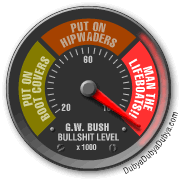Friday Nite Retro
F R I D A Y ! ! ! And that means it's time for another action-packed edition of Friday Nite Retro! I'm dedicating tonight's show to Robert Rouse and all of the other boots on the ground in DC this evening - I wouldn't be surprised if tonight's featured artist is among them, he's very active in our causes himself. . .Ladies and gentlemen, I present to you:
Clyde Jackson Browne
Browne was born in Heidelberg, Germany on October 9, 1948. His father was an American serviceman who was stationed there. Truth in lyrics there - he really was 17 in '65!
Browne moved to the Highland Park district of Los Angeles, California at an early age and began singing folk music in local venues. In 1966, he joined the Nitty Gritty Dirt Band. Browne signed a publishing contract with Nina Music, and his songs were performed by Joan Baez, Tom Rush, The Eagles, Linda Ronstadt, the Byrds and Steve Noonan, among others.
After moving to Greenwich Village, Browne worked with Tim Buckley as well as Nico's Chelsea Girl, where he penned the classic song "These Days". After leaving New York City, Browne formed a folk band with Ned Doheney and Jack Wilce.
These Days
Browne signed with Asylum Records in 1971, and scored this first top ten hit from his debut album with them early the next year.
Doctor, My Eyes"
His next album, 1973's For Everyman, was less successful. It only sold a million copies. The upbeat "Take It Easy," co-written with The Eagles' Glenn Frey, had already been a big hit for that group, and the title track was the first of Browne's studies of personal exploration, soul-searching, and despair set against the backdrop of a decaying society.
Late for the Sky (1974) consolidated Browne's following, with some fans drawn in purely by the record's intriguing, Magritte-inspired cover. Highlights included the searching, heartbreaking title song, the elegiac "For a Dancer" and the apocalyptic "Before the Deluge". The arrangements featured the evocative violin and guitar of David Lindley, Jai Winding's outstanding piano, and the stellar harmonies of Doug Haywood. The title track was also featured in Martin Scorsese's film Taxi Driver. Around this time, Browne began his fractious but lifelong professional relationship with the brilliant but less successful singer/songwriter Warren Zevon, mentoring Zevon's first two Asylum albums through the studio as a producer after browbeating Asylum head David Geffen into giving Zevon a recording contract.
For a Dancer
Browne's disaffected, wondering character struck out even more starkly in his next album, The Pretender, which is arguably his darkest. It was released in 1976, after the suicide of his wife, Phyllis. The album features stronger production by Jon Landau and a mixture of styles, ranging from the Mariachi-inspired peppiness of "Linda Paloma" to the country-driven "Your Bright Baby Blues" to the near-hopeless sadness and surrender of "Sleep's Dark and Silent Gate". Title track "The Pretender" is Browne's magnum opus, a vivid account of romanticism losing the battle with the realities of day-to-day life. This is my favorite Browne song.
The Pretender
"Here Come Those Tears Again" was cowritten by Nancy Farnsworth, the mother of Browne's first wife Phyllis Major, following Phyllis' untimely death. I was unable to find video for this one, but here's the audio:
By then, Browne's work had gained a reputation for its compelling melodies, clear, honest, and insightful lyrics, and a flair for composition rarely seen in the world of rock and roll. He was often referred to as "a thinking man's rock star."
Browne began recording his next LP while on tour, and Running on Empty (1977) became his biggest commercial success. Breaking the usual conventions for a live album, Browne used all new material and combined live concert performances with recordings made on buses, in hotel rooms, and back stage, creating the audio equivalent of a road movie. Running on Empty contains many renowned songs, such as the propulsive title track, "Running on Empty", "The Road" (written and recorded in 1972 by Danny O'Keefe), "Rosie", and "The Load-Out/Stay" (Browne's affectionate and knowing send-off to his concert audiences and roadies).
Runnin' on Empty
Cocaine
Stay
His next album Hold Out (1980) was commercially successful — his only number 1 record on the U.S. pop albums chart.
Boulevard
The following year he released the single "Somebody's Baby" from the Fast Times at Ridgemont High soundtrack, which became his biggest hit, peaking at #7 on the Billboard Hot 100.
Somebody's Baby
The 1983 Lawyers in Love followed,(My 2nd fave Browne tune) signaling a discernable change from the personal to the political in his lyrics.
Lawyers in Love
During the 1980s, Browne frequently performed at benefit concerts for causes he believed in, including Farm Aid; Amnesty International (making several appearances on the 1986 A Conspiracy of Hope Tour); post-Somoza, revolutionary Nicaragua; and the Christic Institute. The album, World in Motion, released in 1989, was even more politically-oriented and polarizing.
Four years after his previous album, Browne returned with I'm Alive, a critically acclaimed album with a more personal perspective that had no hits but still sold respectably — indeed, the ninth track from the album, Sky Blue and Black, was used during the pilot episode of the situation comedy Friends. He also sang a duet with Jann Arden, "Unloved", on her 1995 album Living Under June.
I'm Alive
In the Shape of a Heart
And THAT is a wrap on tonight's FNR - Have a great weekend!!
Labels: FNR, Jackson Browne













0 Comments:
Post a Comment
<< Home